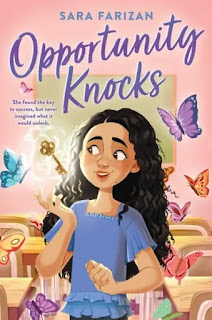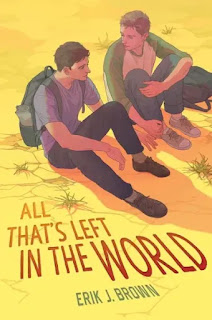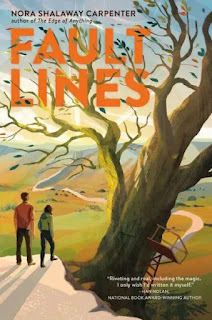Of all the books I've reviewed in the past year, this one has probably had the most buzz of any of them. Aside from the fact that Hazelwood is an accomplished author of adult romance, is it worth the hype? In short, not really. It's a charming YA romance with rather mature sentiments, but it breaks no new ground and suffers from shockingly thin research. (OK, I will forever hold a grudge against any author who places her action on the Penn State campus, but claims that it is located in Philadelphia! -- page 76)
Mallory was once an up and coming chess whiz until she quit playing at fourteen, due to some painful events surrounding her father's death. Ever since then, she's been trying to get as far away from chess as she can. But the sport won't leave her alone and she gets aggressively recruited by a chess school to come and be a fellow for a year. When she loses her existing job as a car mechanic (!) and faces the reality that she's the sole breadwinner for her sick mother and two younger sisters and has no means of paying the bills, she agrees reluctantly to take the offer.
The boy is Nolan, the world's current #1 rated player. Of course, he's a sullen bad boy with a reputation and gloriously single (as is Mallory). In a sport which is notorious for having a poor work-life balance, the two of them have an amazing amount of time to hang out. They take advantage of this by studiously avoiding falling into each other's arms (until of course they do). But anyone looking for sex will be saddened to learn that in this novel there are far more cases of the f-word being spoken aloud than being performed.
All that mockery aside, the story is entertaining and while I don't believe for a minute that either Mallory or Nolan know how to play chess (or car mechanics), I really enjoyed reading the book. It moved fast, had funny moments, and contained a delightful cast of characters. Most importantly, there's some wonderful things said about the sexual discrimination that plagues professional chess, although the point gets beaten to death. The sisters got on my nerves, but I think that was intentional and it furthers the plot. As for the things that most drive me nuts (the worthless mother, Mallory's self-pity, and the author's affection for contemporary youth culture references), they can be put aside and the book enjoyed.




















